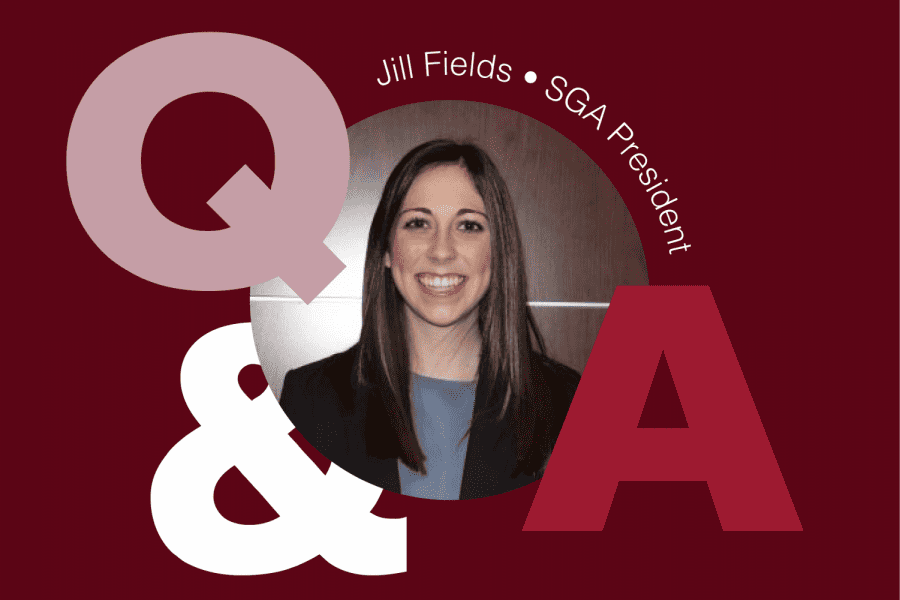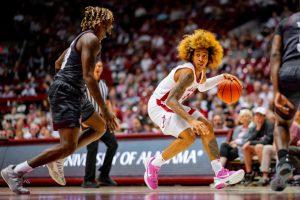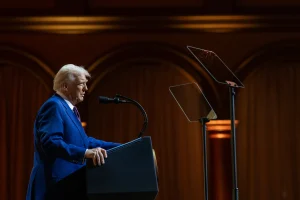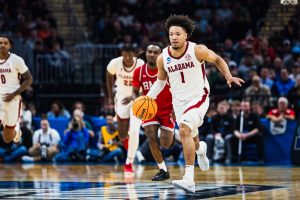Q&A | Jill Fields is your only option for SGA president
Jill Fields, a junior majoring in operations management, public health and psychology, is running unopposed for the position.
February 28, 2021
How did you originally get involved with the Student Government Association (SGA)?
I had the fortune of being selected to be in First Year Council, so that was kind of my first introduction into SGA. I really liked the ability to kind of advocate for change for the first year students, so then I continued on to serve as a College of Arts and Sciences Senator. After my time in the senate, I now serve as the Vice President for External Affairs.
How does this position align with your personal and professional goals?
I have always wanted to make sure that I advocate for the students and really create change on our campus for the better. I think that being president will be a really great opportunity for me to be able to kind of work together with people from all over campus and try to accomplish some of those personal goals.
What experiences have prepared you to take on this position?
I think that one of my most valuable experiences has definitely been my role in helping mitigate COVID on campus. I’ve actually spent over 450 hours working through the University Medical Center, working in sentinel testing, reentry testing, extra testing and every form of testing, really. I will also be able to bring my experiences as vice president for external affairs to the table, where I’ve gotten to work with different people and administration, as well as other campus departments, and other student organizations.
Why do you believe that you are the best candidate for this position?
In addition to being in SGA, I’m also in the [University Fellows] program, as well as serving as a College of Arts and Sciences ambassador. I’ve also been in different organizations at the [Culverhouse College of Business.]
What is the biggest problem you see on campus and how do you plan to address it?
I think that the biggest problem on campus is just a lot of division. My goal is to address that, and a lot of my platform points are, especially in terms of COVID, focused on bringing everyone together.
What are your primary goals for this position?
My theme, if you will, for my campaign has been connection and continuity. I’ve broken down a lot of my points into four C’s, which are connection, community, care and commitment. My overall goal is really just to bring campus together and make sure that everyone feels as though their voices are heard.
Your platform does talk about inclusion initiatives, intentional reminders about our history and academic equity. Can you elaborate?
I know something that we’ve discussed is a lot of times we’ll create initiatives for students, but not necessarily talking to them beforehand to make sure that even little things like the times are good for them, or the format of the event is working for them. Also, of course, the big things like historical markers and the opportunity to address pronouns on the first day of classes so that students are really feeling welcomed in their atmosphere.
How do you feel about the election being uncontested?
I was surprised that it was uncontested. I guess students have found other ways that they would like to be involved or have felt as though they can make change in a different way.
What is one last thing you want voters to know about you?
If I could tell students anything about myself, it would just be that I really, really care about everyone’s voices being heard. I hope that they feel as though they can really trust me and come to me in any situation. I can’t promise that I can make every single thing happen, but at least they’ll know that I have worked for it.
This interview was conducted via email.





















